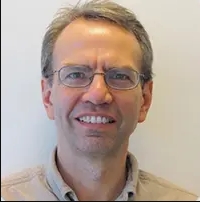Visiting Scholars
Visiting Scholars
| Visitor | Period of stay | Office | Email address | Research interests | |
|---|---|---|---|---|---|
John Carpenter |
1 April 2025 to 3 April 2025 | Dr. John Carpenter joined the ALMA Project in September 2015 as the ALMA Observatory Scientist. John received his PhD from the University of Massachusetts-Amherst, and was a James Clerk Maxwell Fellow at the University of Hawaii and an Postdoctoral Scholar at the California Institute of Technology (Caltech). While at Caltech, John conducted research using the Owens Valley Radio Observatory (OVR... |
 |
Past Visiting Scholars
| Visitor | Period of stay | Research interests | |
|---|---|---|---|
|
Marek Abramowicz |
12 May 2024 to 19 May 2024 | Prof. Marek Abramowicz earned his Ph.D. in theoretical physics from Warsaw University. After that he worked for several years at Stanford University and University of Texas at Austin. Later, for more than a decade, he collaborated closely with Dennis Sciama, first at Oxford University and then at the International School for Advanced Studies in Trieste. For twenty years he was a member of the Academic Board at the Salam's International Centre of Theoretical Physics in Trieste. In 1990-1994 he was professor of astrophysics at Nordita, the Nordic Institute for Theoretical Physics in Copenhagen. He was the Chair professor of Astrophysics at Göteborg University and Chalmers University of Technology in Sweden for many year. Now he is a professor at the Nicolaus Copernicus Astronomical Center of the Polish Academy of Science, and a member of the European Academy of Sciences and Arts. His main field of research is theory of black hole accretion disks. Together with collaborators he discovered and/or developed models of Polish Doughnuts, Slim disks, ADAFs, magnetically arrested disks (MAD). The well-known model of slim accretion disk has been considered as one of the foundations of understanding the formation and growth of supermassive black holes. |
 |
|
Minjin KIM |
24 Feb 2024 to 25 Feb 2024 | I am an associate professor in Department of Astronomy and Atmospheric Sciences at Kyungpook National University. My main research interests are the physical properties of Active Galactic Nuclei (AGN) and their host galaxies, and the evolution of nearby galaxies. I am also involved in SPHEREx space mission. |
 |
|
David Ian Jones University of Southampton |
17 Apr 2023 to 25 Apr 2023 | Prof Ian Jones is an expert on astrophysical sources of gravitational waves. He is a member of the Gravity Group in the department of Mathematical Sciences, University of Southampton. He is also a member of the LIGO Scientific Collaboration, where his main focus is the search for continuous sources of gravitational waves, such as spinning or oscillating neutron stars. |
 |
|
Song-hu Wang Yale University |
2 Apr 2020 | exoplanets/observations |
.jpg) |
|
Song Huang Princeton University |
6 Jan 2020 to 11 Jan 2020 | galaxies/observations |
 |
|
Wei Zhu CITA |
2 Jan 2020 to 9 Jan 2020 | Exoplanet, dynamics, gravitational microlensing, stellar-mass black holes. |
 |
|
Hao-Yi Wu Ohio State University |
2 Jan 2020 to 9 Jan 2020 | theoretical and experimental cosmology, cosmic acceleration, galaxy clusters, gravitational lensing, cosmological simulations, extragalactic background light, cosmic star-formation history |
 |
|
Miao Li Flatiron Institute |
2 Jan 2020 to 9 Jan 2020 | Li’s research focuses on understanding how galaxies form and evolve, in particular on how the small-scale feedback from stars regulates galaxy formation. |
 |
|
Fabo Feng Carnegie DTM |
2 Jan 2020 to 9 Jan 2020 | exoplanet, astrostatistics, celestial dynamics, wide binaries, interstellar objects |
.jpg) |
|
Suoqing Ji California Institute of Technology |
11 Dec 2019 to 13 Dec 2019 | magnetohydrodynamics, turbulence, instabilities and cosmic rays |
 |
